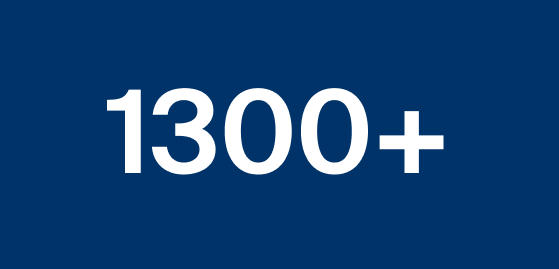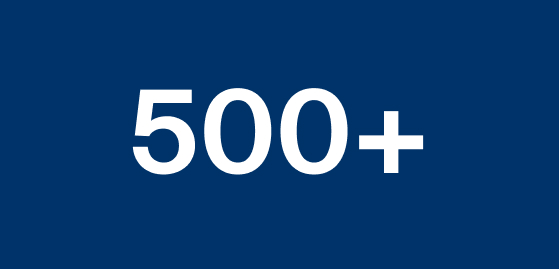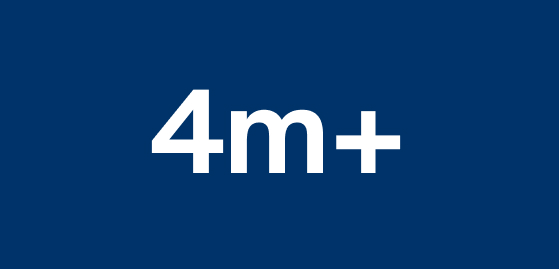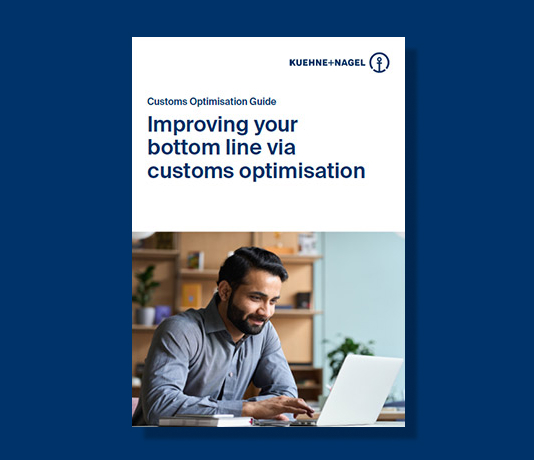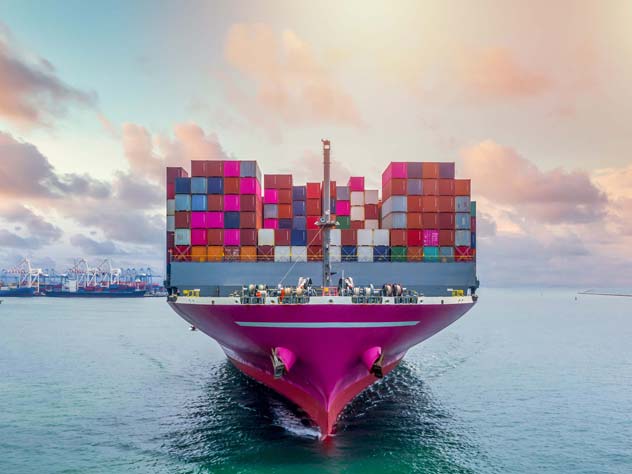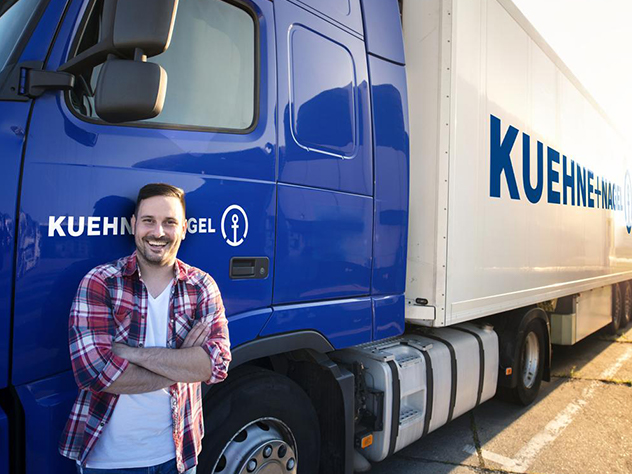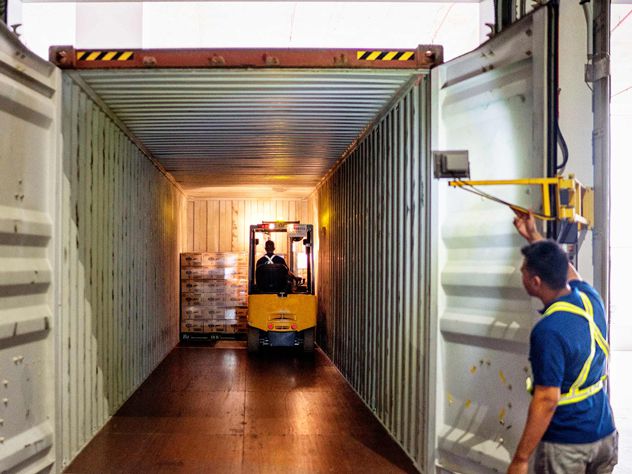Understanding customs regulations and adhering to proper procedures is crucial to streamline supply chains. Conversely, a lack of regulatory insights attracts higher duty levels and potentially results in non-compliance, especially if you rely on multiple customs brokers.
But there is a solution. By working with a single trusted import customs broker, you can ensure your imports are managed in full compliance with local and international customs regulations. This also lends itself to tariff classifications and trade agreements, as well as assessing applicable duties and taxes.
Our import customs clearance and transit services at a glance
Our range of services can be customised to your flow of goods, ensuring that your imports are managed without delays, at optimal costs, and in full compliance with regulatory requirements. Here’s an overview of the solutions we offer:
- Import declaration—Single Administrative Document (SAD)
- Management of special import regimes
- Inward processing relief
- Outward processing relief
- Temporary imports
- Bonded warehousing - Discharge of Transit Accompanying Documents (TAD)
- Document and goods inspection management
- Creation of phytosanitary documents
- Issuance of import certificates
- Duty & VAT deferment services
- Indirect representation
- Handling of fiscal formalities:
-Fiscal representation in the Netherlands, Belgium and France
-Intrastat filing-statistics - CBAM consultancy and filing
The benefits of importing with an expert customs broker
Partnering with a customs expert who understands the topography of international trade puts your business in a solid position, setting you up for sustained growth and success.
Unrivalled benefits

 Total European coverage
Total European coverage
Navigating multiple countries means encountering a myriad of rules and regulations. Suffice it to say, this is a maze of red tape full of potential pitfalls. Kuehne+Nagel is a licensed customs broker in all European countries, who can import goods into each European state, thus helping you to grow your business.
With locations at every significant European entry point, our customers get unrivalled access to improved routings that involve fewer partners.

 Compliance—every time, everywhere
Compliance—every time, everywhere
We are an Authorised Economic Operator (AEO) certified customs broker, thus securing your end-to-end international supply chain and taking advantage of customs simplified procedures. By partnering with us, you can be assured that your customs operations always comply with the highest European customs standards.

 Avoid hold-ups
Avoid hold-ups
Bad and incomplete invoices create a lot of extra work and delays in the customs clearance process.
What is a commercial invoice?
A commercial invoice is a document from the sender in which information about the sender, the recipient, the shipment, the contents, quantity, value and payment terms are stated. When clearing customs, the invoice is used as the basis for any tax calculation.
What should a commercial invoice contain?
In Norway, it is the Accounting Regulations that state what an invoice must contain:
- Invoice number and date
- Buyer and seller name and address
- Product description
- Delivery time and place
- Amount and time of payment
- Any VAT and other fees if relevant
Incorrect customer clearance is the most common mistake when importing to Norway.
There is no requirement that the VAT/MVA number belonging to Norwegian recipients be applied to invoices issued by foreign suppliers. Norwegian businesses can, however, inform and request that a foreign supplier enter their VAT number, to ensure that it is entered into customs at the correct business.
What is a pro forma invoice?
A proforma invoice is issued when payment is not due for the goods delivered. Examples:
- Replacement goods
- Warranty goods
- Gifts
- Return goods
- Samples, etc. where the recipient does not have to pay for the item
What should a pro forma invoice contain?
- A proforma invoice must be written on it
- Date of issue
- Sender and recipient name and address
- Product description
- Quantity, weight
- Item value
- It must be stated that the item is not to be paid for
Most countries have the same requirements for invoice content. Nevertheless, many invoices accompanying goods to Norway are defective. This creates problems for the person who must declare/clear the goods. The customs authority requires that information as mentioned above appear in the invoice during customs clearance.
What should an invoice look like?
There are no requirements for how an invoice should look, but it is an advantage if they are universally designed.
- UN's proposal for a standardized commercial invoice. (In English)
- Regulations on bookkeeping chapter 4 for more information. (In Norwegian)
- Altinn's requirements and what information must be included in a trade invoice. (In Norwegian)
- Check out what the Swedish customs authorities write about invoice content (in English)
Notification to the Norwegian Food Safety Authority
If foodstuff is sent from outside the EU the invoice needs to be accompanied by a notification to the Norwegian Food Safety Authority. The notification contains HS code, description, gross/net weight, origin and sending country.
Phytosanitary certificate
Certain plants, plant products and other objects needs to be accompanied by a phytosanitary certificate guaranteeing that they are properly inspected, free from quarantine pests, within the requirements for regulated non-quarantine pests and practically free from other pests. For complete information, see the website of The Norwegian Food Safety Authority.
Proof of origin
There are duties on some goods being imported to Norway, first and foremost textiles and food. To get reduced duties the invoice needs to be accompanied by proof of origin. An invoice with invoice declaration, EUR1 or Form A (Generalized System of Preferences).
Permits
Some goods are restricted and needs to be accompanied by permits, like weapons, medicines etc.
Packing list
Must contain a description of the goods, weight and the number of collies.
Common errors that can cause delays.
Invoice with a foreign buyer: Any invoice needs to contain a Norwegian entity listed as IOR, buyer, importer etc.
Invoice with Norwegian entity only as delivery address: We cannot accept an invoice with the Norwegian entity only listed as delivery address, it needs to be IOR, buyer, importer etc.

 Minimise unnecessary costs
Minimise unnecessary costs
Our experts are on hand to identify where you can optimise your expenditure. By leveraging free trade agreements and customs simplified procedures, we can help you reduce overspending on duties and taxes. We offer support on duty reduction schemes and bonded warehouses, ultimately helping you improve your overall cash flow.

 Reliable transit services
Reliable transit services
Our solution rests on the exclusive customs guarantees we have with each EU member state, even for high-value goods. This means that there are no customs delays as your goods move through successive countries under duty & tax suspension—they only need to be cleared once they arrive at their destination.
Experts at handling big numbers
Kuehne+Nagel has long-term experience in international trade and customs. In so doing, we are able to respond rapidly to changing market and regulatory conditions. Our global network includes former customs officials, industry professionals, certified customs brokers and specialists. Find out how you can benefit from our extensive range of expertise, coverage and simplified solutions.
Being recognised as an Authorised Economic Operator (AEO) trade partner by numerous authorities, we help businesses navigate trade efficiently.
Improving your bottom line via customs optimisation
Customs typically comprise of a far larger share of landed costs than transportation itself, yet companies are often preoccupied with the latter.


